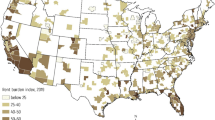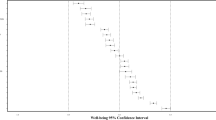Abstract
Homeownership is encouraged by many governments because it is supposed to have a positive effect on both the individual and society as a whole. Homeownership is assumed to be preferred over renting, because it provides greater security, more freedom, financial advantage and therefore higher housing satisfaction. This theory has been developed and mainly tested in English-speaking countries. A number of researchers, most notably from continental Europe, have criticized the perceived superiority of homeownership and the effects that are ascribed to it by these theories. They state that, wherever there is a well-developed rental sector, renting represents an adequate and acceptable alternative to homeownership. It can also be questioned whether the theory can be confirmed for Southern Europe, where homeownership seems to be part of a family tradition and not a choice.
This paper uses the European Community Household Panel to test if homeowners are more satisfied with their housing situation than tenants. The results indicate that homeowners in seven out of eight countries are more satisfied with their housing situation than tenants. Only in Austria do homeowners and tenants display a similar level of housing satisfaction.
Similar content being viewed by others
References
Allen J., et al., 2004, Housing and Welfare in Southern Europe, Oxford: Blackwell publishing
Behring K., Helbrecht I., 2002, Wohneigentum in 0Europa, Ludwigsburg (Wüstenrot Stiftung)
Castles F., Ferrera M., 1996, Home Ownership and the Welfare State: Is Southern Europe Different?South European Society and Politics 1(2):163–185
Elsinga, M. (1995) Een eigen huis voor een smalle beurs: het ideaal voor bewoner en overheid? [Homeownership on a low budget], Delft (DUP)
Forrest R., Murie A., Williams P., 1990, Home Ownership: Differentiation and Fragmentation, London (Unwin Hyman)
Gurney, C.M., 1999a, Pride and Prejudice: Discourses of Normalization in Public and Private Accounts of Home OwnershipHousing Studies, 14:163–183
Gurney C.M., 1999b, Lowering the Drawbridge: A Case Study of Analogy and Metaphor in the Social Construction of Home Ownership Urban Studies, 36:1705–1722
Hoekstra, J.S.C.M. (2005a) Connecting Welfare State Regimes, Tenure Categories and Dwelling Type. In: Methodologies in Housing Research (Eds, Vestbrö, D., Hürol, Y. and Wilkinson, N.), The Urban International Press, pp. 222–239
Hoekstra, J.S.C.M. (2005b) Rental Markets in the European Union. An Empirical Test of Kemeny’s Rental Systems Typology, Paper for the ENHR 2005 Conference in Iceland
Karn V., Kemeny J., Williams P., 1985, Home Ownership in the Inner City: Salvation or Despair?, Aldershot (Gower Publishing Company)
Kemeny J., 1981, The Myth of Home Ownership, London (Routledge & Kegan Paul)
Kemeny J., 1995, From Public to Social Market; Rental Policy Strategies in Comparative Perspective, London, (Routledge)
Murie A., 1986, Social Differentiation in Urban Areas: Housing or Occupational Class at Work?Tijdschrift voor Economische en Sociale Geografie, 77:345–357
Rohe W.M., Stegman M.A., 1994, The Impacts of Home Ownership on the Self-Esteem, Perceived Control and Life Satisfaction of Low Income PeopleJournal of the American Planning Association 60:173–184
Rohe W.M., van Zandt S., McCarthy G., 2001, The Social Benefits and Cost of Homeownership: A Critical Assessment of Research, Low-Income Homeownership working Paper Series, Boston (Joint Center for Housing Studies of Harvard University)
Rossi P.H., Weber E., 1996, The Social Benefits of Homeownership: Empirical Evidence from national SurveysHousing Policy Debate, 7:1–81
Saunders P., 1990, A Nation of Home Owners, London (Unwin Hyman)
Acknowledgement
The authors wish to acknowledge the financial assistance of the Dutch government through the Habiforum Program Innovative Land Use and Delft University of Technology through the Delft Center for Sustainable Urban Areas.
Author information
Authors and Affiliations
Corresponding author
Rights and permissions
About this article
Cite this article
Elsinga, M., Hoekstra, J. Homeownership and housing satisfaction. J Housing Built Environ 20, 401–424 (2005). https://doi.org/10.1007/s10901-005-9023-4
Received:
Accepted:
Published:
Issue Date:
DOI: https://doi.org/10.1007/s10901-005-9023-4




